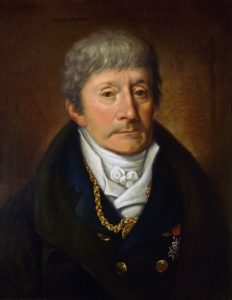
Opera Profile: ‘Armida,’ Salieri’s First Success
By Gillian ReinhardThough his legacy is strongly tied to the negative and wildly fabricated portrayal in the play and film “Amadeus,” Antonio Salieri was a respected and notable composer in his own right. One opera that best represents the composer’s ability is “Armida,” which was first performed at the Vienna Burgtheater June 2, 1771.
Salieri’s first opera, “Le Donne Letterate,” premiered to the Viennese public a year earlier. Reactions to this debut opera were lackluster. “Armida,” however, was an instant success and propelled the composer to fame. Just a few years later, Salieri was promoted to director of Italian opera in Vienna and later became the Imperial Kappelmeister of the Hapsburg Court. The opera catapulted Salieri’s international career and ushered him into the music circles of Vienna where the interactions between supposed rivals Mozart and Salieri may have taken place.
Short Plot Summary
Salieri’s opera is his take on the famous story by the Renaissace poet Torquato Tasso. “Armida,” which was written by librettist Marco Coltellini, is the love story of a Saracen (a medieval term for Arab Muslim) sorceress who falls in love with Rinaldo, a Christian warrior. In the midst of the Crusades, Armida plans to kill Rinaldo on the orders of the Saracen army, but instead falls in love with him.
Armida holds Rinaldo prisoner in an enchanted garden she creates. Rinaldo is rescued by his fellow Christian fighters, but is barely able to resist Armida’s longing for him to stay with her.
Tasso’s “Armida” was a popular story of the eighteenth century and was reinterpreted by composers such as Monteverdi, Handel, Vivaldi, Gluck, and Haydn. Later, Rossini, Dvorák, and Judith Weir also offered their own operatic interpretations.
Famous Musical Numbers
At the time, Salieri was the preeminent composer of Italian opera in Vienna. Today, however, relatively little attention is given to Salieri’s operas, and “Armida” is no exception.
In some ways, Salieri’s “Armida” served as a vehicle for the soprano who sang the title character. Salieri intended for his score to highlight the coloratura ability of Catharina Schindler, particularly in the aria “Tremo, dell’idol mio.”
Besides Schindler, little else is known about the opening cast, though Rinaldo may have been played by the famous Italian castrato Giuseppe Millico. Mezzo-Soprano Cecilia Bartoli has brought Rinaldo’s aria “Vieni a me sull’ali do’oro” to relevance in her Salieri album.
Watch and Listen
Here are a couple notable arias from the opera.
Categories
Opera Wiki

